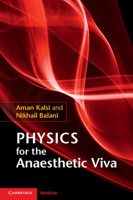Cookies help us deliver our services. By using our services, you agree to our use of cookies.
Shopping cart
Search
Cambridge university press
Teaching Medical Professionalism: Supporting the Development of a Professional Identity
€58.34
This book presents ideas, evidence and guidance for those interested in using the most recent advances in learning and human development to enhance medical education's ability to form competent and caring physicians. It does this by establishing development of a professional identity as a primary goal of medical education.
Interpretation of Emergency Head CT: A Practical Handbook
€56.01
Clinicians use cranial CT in a variety of life-threatening conditions, including acute stroke and trauma. Timely interpretation can facilitate early specialist intervention. This easy-to-read Handbook provides a practical system for interpretation, supplemented by clinical chapters covering wide-ranging pathology and simplified technical details, thereby making it an excellent learning aide.
Physics for the Anaesthetic Viva
€43.17
This book prepares FRCA trainees for the physics viva by explaining fundamental science and its application to anaesthetic practice. The information provided is concise, comprehensive and relevant to the curriculum. The sample viva questions are based around common viva themes appearing in previous exams.
Cyberpsychology: An Introduction to Human-Computer Interaction
€45.51
This textbook uses clear, non-technical language to give students in psychology and computer science a comprehensive understanding of the human-computer interface. Covering the past, present, and future developments in technology and psychology, it combines cutting-edge research with engaging illustrations, examples, and discussion questions.
Quality Management in Intensive Care: A Practical Guide
€64.18
One of the first comprehensive summaries of the latest thinking and research in this rapidly evolving field. With a practical focus on patient-centred, evidence-based implementation to increase efficiency and safety, the book reflects commonly accepted goals and guidelines for best practice. For intensive care physicians and ICU and hospital managers.
Edwards' Treatment of Drinking Problems: A Guide for the Helping Professions
€66.51
Presenting state-of-the-art, accessible reviews of the expanding science of alcohol treatment, integrated with practical guides to the management of a wide range of clinical situations, this new edition is compassionate toward patients, optimistic about treatment, and candid about the clinical and professional challenges embedded in the treatment endeavour.
Critical Cases in Electrocardiography: An Annotated Atlas of Don't-Miss ECGs for Emergency Medicine and Critical Care
€78.18
This atlas focuses on ECG tracings where abnormalities are subtle and diagnoses not obvious. The examples show ECGs that are often misinterpreted, even by experienced clinicians and computer algorithms. The atlas emphasizes clinically-relevant topics, focusing squarely on situations where interpretation of the ECG aids clinical decision-making.
The Dementia Manifesto: Putting Values-Based Practice to Work
€52.51
This book explores how a values-based, person-centred and rights-based approach can be applied to every aspect of the experience of dementia. It will appeal to clinicians, practitioners, academics and students from various fields including psychiatry, psychology, nursing, social work and occupational therapy.








